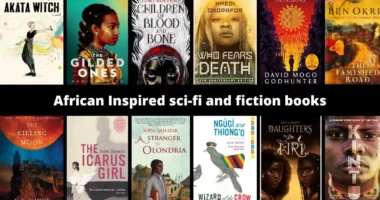- Go over your notes right away and arrange them more logically so they’re easier to find later.
- The knowledge sticks out more in your long-term memory since you’re actively speaking.
- It’s simpler for you to remember the material more rapidly because you have to actively recollect the material you…
- By connecting complicated subjects to something else, you’ll remember them better.
- To help you visualise and remember what you’re learning, try relating it to something you already know.
- If you practise frequently, your long-term memory will improve.
How to Learn Faster, Anything You Want to Learn: Although learning a new topic requires time and effort, don’t you wish there was a quicker way to grasp it? While cramming the material won’t help you learn it in the long run, using excellent study techniques will help you understand it a little bit faster. We’ll start with methods for learning and revisiting ideas before moving on to some lifestyle adjustments you may make to improve your memory.
How to Learn Faster, Anything You Want to Learn
Take notes by hand
When you write anything down, it’s more probable that you’ll remember it. If you’re at a class, pay close attention to the lecture and make a note of the words and phrases that stand out to you. Rewriting what you read in your own words can help you remember what you read whether you are learning anything from a book or online. You’ll be able to recollect it more quickly if you do it that way
For instance, you might create a timeline of all the significant dates and events in US history if you were seeking to learn more about it. Take notes while paying close attention to your studies to ensure that you don’t miss any important information. Go over your notes right away and arrange them more logically so they’re easier to find later.
Say it aloud
You can remember knowledge better if you repeat it aloud to yourself. If you’re studying from a book, online, or your notes, read it out loud. Read the text slowly to avoid missing any crucial information. To help you remember the words even better, try pointing at them as you read. It becomes simpler to recall the knowledge off the top of your head the more times you say it aloud.
For instance, practise pronouncing vocabulary words and phrases as you learn them if you’re trying to learn a new language. The knowledge sticks out more in your long-term memory since you’re actively speaking.

Take a self-test
Take a quiz to see what subjects you still need to review. Test your memory by reciting all you learnt after reading or practising anything. Try putting down the definitions of words or phrases that you need to remember without going to a dictionary. Make a note of the information you find challenging to recall so you may review and practise it again. At this manner, you avoid spending time on activities you are already proficient in.
For instance, if you are testing yourself on a chapter from a textbook, describe what happened in your own words. At the end of the chapter, look for any keywords and attempt to define them. Numerous practise tests are also available.
Give the knowledge to someone else
You keep the key aspects of anything better if you can explain it. Have a friend listen to you as you attempt to explain the material you’ve been learning to them. To avoid confusing them, try to convey everything you know to them in a straightforward manner. Inquire if they comprehend or if you should explain it more thoroughly. Make careful to go back and study any information that you find difficult to recall. It’s simpler for you to remember the material more rapidly because you have to actively recollect the material you’re teaching.
Consider educating someone about the periodic table and how chemicals interact if you are learning about chemistry.

Make use of mnemonics
To memorise complicated concepts, combine letters with gibberish sentences. Abbreviate the first letter of each item if you need to memorise a list of facts or a more abstract idea. Another option is to try coming up with a memorable sentence that is amusing. You will have an easier time remembering the topic as you are connecting images and visuals with it. You won’t have to spend as much time on the challenging material because you only have to recall shorter phrases.
For instance, you can use the phrase “Every Good Boy Deserves Fudge” to help you remember the notes E, G, B, D, and F if you’re learning music and need to memorise the notes on a treble clef.
Compare it to something you already understand
By connecting complicated subjects to something else, you’ll remember them better. If you can’t visualise a subject, it can be difficult to comprehend it. To help you visualise and remember what you’re learning, try relating it to something you already know. You will remember it far more easily since you already have an association with something else you are familiar with.
For instance, you may compare the solar system to the structure of an atom if you’re having problems understanding it. Just as planets revolve around the sun, so do electrons around an atom’s nucleus.

Your review sessions should be separated
If you practise frequently, your long-term memory will improve. Take your time learning rather than attempting to pack as much information as possible into a short period of time. Always spend a little time in the subsequent practise session going over the material from the previous one so you don’t forget it. The more times you review the material, the easier it will be to retain and sharpen your memory.
If you’re learning Spanish, for instance, you might begin by creating phrases using the vocabulary terms from your most recent study session. Try adding a few new words to your current session and utilising them in sentences as well.
Every day, alter your practising method
You can learn something more quickly by making small tweaks as you go. Your brain can develop routines if you perform the same task every day. Instead, speed up your study session or add a small change, like playing a learning game or increasing the level of difficulty, to make it more challenging. It helps you retain the material faster because you have to adjust to the new environment.
For instance, consider writing the words and translations down on the first day of learning a new language. Create a game the following day where you must match each translation to the word.
Also Read: 10 Best Young Adult Retellings of Peter Pan



